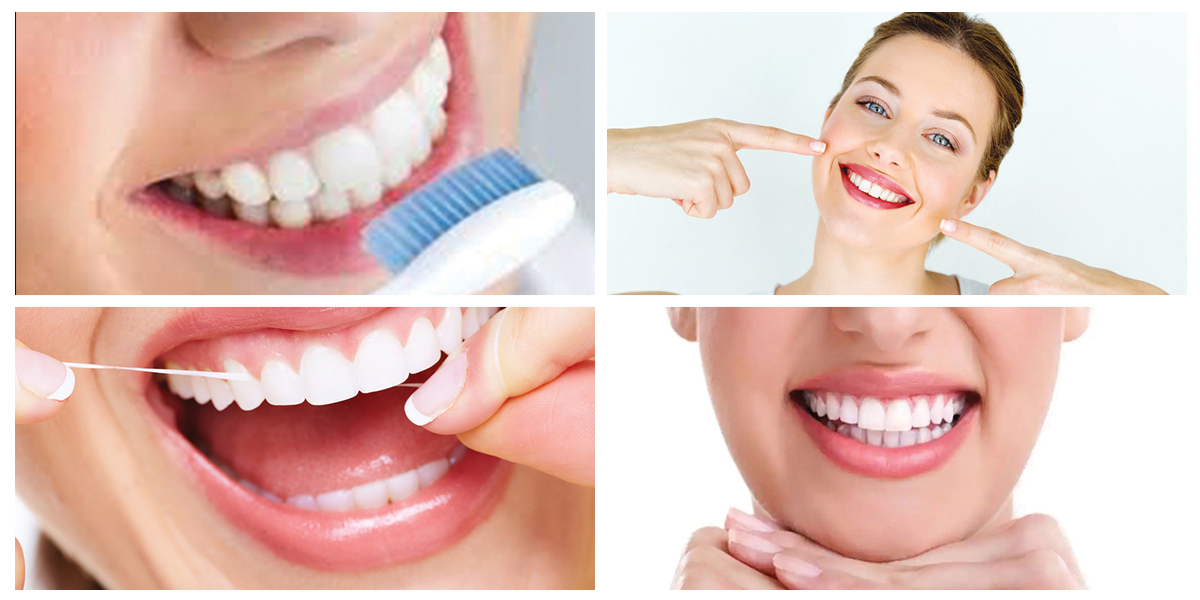Synopsis
There's more to a sparkling smile than just brushing and flossing.

Karachi: When you meet with people for a work meeting, family reunion, or social event, you want to make the best impression possible. You probably choose the best outfit from your wardrobe, think of a great hairstyle, accessories, and everything you might need to put your best foot forward. But wait, have you put as much thought into your breath? We doubt.
Meeting someone with bad breath can steer your first impression in the wrong direction. Your teeth may look pearly white, and you have no qualms flashing a perfect smile. But if you suffer from bad breath, you may be embarrassed to smile at anyone-or even talk in front of them.
If you do have bad breath, don’t worry. We are here to share 5 best practices for good oral hygiene. So read ahead and say goodbye to bad breath and everyday dental problems. – We bet nobody told you about these!
Don’t brush too often.
Are you brushing your teeth after every meal? You are doing more harm than good. Remember, brushing too often can damage your gums and the enamel on your teeth, so, twice a day is enough.
Brushing for two minutes twice a day, known as the 2×2 rule, will help keep plaque at bay. However, after every meal and snack, you can rinse your mouth with plain water if you can’t go without brushing.
Wash your toothbrush holder
Yeah, we can imagine your reaction, but we are not fooling you.
The National Sanitation Foundation study found that toothbrush holders are the third germiest household item (your dish sponge and kitchen sink take the first and second spots). So, we suggest you run it through the dishwasher or wash it in hot, soapy water. You can also use a disinfecting wipe once or twice a week for a quick clean-up.
Add a good mouthwash to your oral routine
Brushing and flossing are good, no doubt, but rinsing with an antimicrobial mouthwash afterwards will kill the remaining oral bacteria, helping to fight plaque. Take a cap full of mouthwash and swish vigorously for 30 seconds twice a day after brushing and flossing,
Before you choose any product, always talk to your dentist about it. Not everyone should use a fluoride mouth rinse because fluoride rinses are not recommended for children ages 6 or younger the reason being that they may swallow them. Moreover, always check the manufacturer’s label for precautions and age recommendations and talk with your dentist about the use of fluoride mouth rinse.
Pro tip: When going for an important meeting, always use mouthwash before leaving home.
Have a habit of drinking something before you get off the bed? Wait before you brush
If you can’t go without a glass of orange juice or a cup of tea/coffee in the morning, you have to hold off on brushing for a while afterward.
Foods and drinks with a low pH, acidic foods—temporarily soften the enamel of the teeth. If you immediately follow up with brushing, the action could remove some of the enamel, making your teeth more susceptible to decay over time.
Do you know what the worst part is? If you keep doing so, you allow odour-producing bacteria into your mouth.
Keep yourself hydrated
Like some foods can actually help keep your pearly whites, well, white. Water can be your best friend too.
Drinking sufficient water is not only great for your overall health but being hydrated also helps maintain a healthy saliva flow. Saliva helps in dental health by moving food particles through your mouth, preventing them from lodging in your teeth where bacteria can grow. It also helps to keep your mouth comfortable and moist.
If you can’t have much water for the day, add celery, cucumbers, apples, pears, melon, carrots, and lettuce to your diet because these fruits are fantastic for your oral health.
Practicing a good oral hygiene routine, combined with regular visits to the dentist, can help protect your teeth and mouth. Most oral health conditions are largely preventable and can be treated early. Maintaining good oral health positively impacts your general health, well-being, and quality of life.
What happens when you don’t practice good oral hygiene?
Besides cavities, poor dental hygiene and neglecting daily oral care can have a profound impact on your health and longevity. There is mounting evidence that shows an association between poor dental hygiene and a wide variety of illnesses.
Tooth loss: If you’ve never worried about losing your teeth, you should start. Adults 20 to 64 have lost an average of seven (permanent) teeth, and most people between 50 and 64 have absolutely no teeth left. Both cavities and gum disease can cause tooth loss.
Gum disease: Your gums are not supposed to bleed when you brush and floss your teeth, so if yours do, you likely have gum disease. If plaque spreads, the immune response heightens and can destroy tissues and bones in the mouth, creating pockets between the teeth that can become infected. At this stage, gum disease is called periodontitis, a serious gum infection that damages the soft tissue and destroys the bone that supports your teeth.
Bad breath: If you think onions, garlic, and spicy foods are the only things that cause bad breath, think again. Poor oral hygiene is a major cause of halitosis because bacteria thrive in warm, dark, and moist places, such as your mouth. If you don’t remove the bacteria by daily brushing and flossing your teeth, it will flourish, causing cavities and bad breath.
Happy brushing!
Catch all the Breaking News Event and Latest News Updates on The BOL News
Download The BOL News App to get the Daily News Update & Live News.












 Read the complete story text.
Read the complete story text. Listen to audio of the story.
Listen to audio of the story.